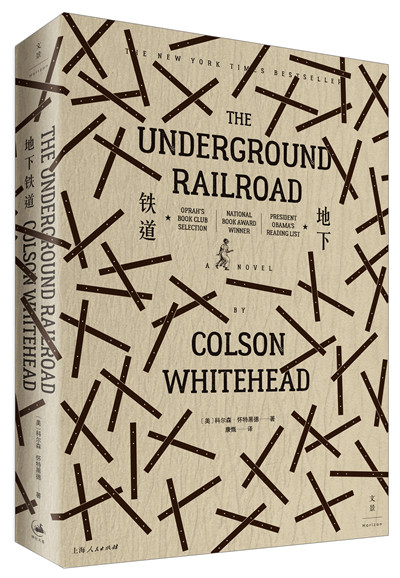 |
|
[Photo provided to China Daily] |
And the Pulitzer committee gave the book the award for its "smart melding of realism and allegory that combines the violence of slavery and the drama of escape in a myth that speaks to contemporary America".
The Underground Railroad refers to a network of secret routes established during the early-to-mid 19th century to help the African-American slaves escape to the northern states or Canada.
Whitehead first conceived the idea of the book some 17 years ago, but he waited until he was finally ready to begin writing it.
Whitehead spent a long time doing research for his skillfully structured story. He read the 2,300 first-person accounts of slavery collected by the Federal Writers' Project in the 1930s, visited a historical plantation site in Louisiana and re-read classics such as Toni Morrison's Beloved.
"There's always a writer that is smarter than you and has done the writing you wanted," he says.
His response is always to write something that speaks to him.
"I was going to have to write about life on a plantation, my impressions of how people react in such situations," he says. "That meant I couldn't write a plantation scene that didn't incorporate what we know as trauma, the experiences of people who have survived genocidal violence such as the Holocaust."
Writing a book in 2015, there was a plenty of material available on post-traumatic stress, and how a person's psychology is deformed by incredibly brutal experiences.
Although Cora, the main character of the book, stands out as being brave and able to act, Whitehead depicts some of his other slave characters in a lesser light, they gossip and abuse their fellow sufferers.
The book's translator Kang Kai says the more "human" characters are one of the book's attractions.